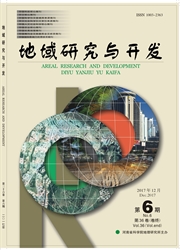

 中文摘要:
中文摘要:
衡水湖自然保护区是华北地区第一个内陆淡水湿地国家级自然保护区,具有独特的自然景观,生物资源十分丰富,但近年来区内的人类活动对其生态环境产生了严重影响。应用生态因子评分方法对保护区进行生态敏感性分析,首先将保护区划分为13个生态单元,依据原则(科学性、代表性、可行性以及定量性等原则)并结合实际选择出评价因子,然后进行各生态单元的自然因素生态敏感性分析和社会因素生态敏感性分析,在此基础上进行保护区的生态敏感性综合分析。依据计算结果,将保护区中各生态单元划分为最敏感区、一般敏感区和弱敏感区3个等级,明确了生态敏感性的区域分异特征,为该区今后合理的产业布局、区域生态环境保护提供了科学依据。
 英文摘要:
英文摘要:
Heng-shui Lake Nature Reserve, the first inland freshwater wetland national nature reserve of north China, has unique natural landscape and rich biological resources; However, human activities within the area have imposed serious impact on the ecological environment in recent years. Using eco-scoring methods to ecological sen- sitivity analysis, first, we divided the reserve into 13 ecological units and selected ecological sensitivity evaluation factors on the ground of principles (scientific, representative, and feasible, as well as quantitative, et al. ) and Jfacts. Then, based on ecological sensitivity analysis on natural factors and social factors, we conducted a comprehensive analysis of the ecological sensitivity. According to the calculation results, the ecological units in the district are divided into three regions of different degrees of sensitivity : the best sensitive area, the generally sensitive area and the weaker sensitive area. And the spatial distribution of ecological sensitivity is characterized, thus providing scientific foundation for rational industry distribution and regional eco-environment protection in future.
 同期刊论文项目
同期刊论文项目
 同项目期刊论文
同项目期刊论文
 期刊信息
期刊信息
